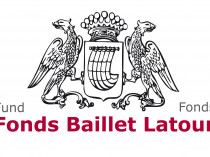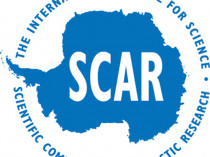Baillet Latour Antarctica Fellowship
NOTICE REGADING COVID-19 AND THE 2020 FELLOWSHIP CALL FOR APPLICATIONS
Due to the COVID-19 situation, the 2020 Baillet Latour Antarctica Fellowship call for applications has unfortunately been postoponed until further notice.
No application procedure to determine the next Antarctica Fellow will take place during 2020.
Please check with this website regularly to learn of the latest developments regarding the Fellowship.
BACKGROUND
The Baillet Latour Antarctica Fellowship provides young scientists affiliated with a Belgian university or research institute with the opportunity to conduct research in East Antarctica while operating out of Princess Elisabeth Antarctica Research Station.
A joint initiative of the Baillet Latour Fund and the International Polar Foundation, the €150,000 Baillet Latour Antarctica Fellowship award aims to promote scientific excellence in Antarctica and underscores the crucial role polar science plays in furthering our understanding of the Earth and how it functions.
The fellowship is open to applicants from any Belgian university or resaerch institution. Applicants must be either doctoral researchers or post-doctoral researchers who have completed their PhD within the last 10 years.
The successful applicant will continue to work at their current research organisation and conduct original research while operating from the Princess Elisabeth Antarctica Station (located in Dronning Maud Land in East Antarctica at 71.57°S 23.20°E).
KEY DETAILS
-
€150,000 over two years
-
supports 2 field seasons at Princess Elisabeth research station
ELIGIBILILTY
-
open to doctoral/post-doctoral researchers (PhD completed <10 years) from any Belgian university or research institution
-
possible fields of research: (1) Atmospheric Sciences (2) Geology (3) Glaciology and (4) Microbiology (excluding marine)
HOW TO APPLY
The call for applications for the 2020 Bailelt Latour Antarctica Fellowship will open shortly. Please keep an eye on this page for the latest updates.
RESOURCES
Need advice on how to write a good proposal? See the recording of the SCAR-COMNAP-APECS Fellowships writing webinar available on the SCAR Fellowships Mentoring page to learn directly from a highly qualified and experienced panel.
Please direct any questions about the Baillet Latour Antarctica Fellowship or research possibilities at Princess Elisabeth to: fellowship@polarfoundation.org
PREVIOUS LAUREATES
-
2018: Dr. Kate Winter, Northumbria University, received the 2018-2020 Baillet Latour Antarctica Fellowship award for her project 'BioFe in Glacial Systems'. Her project involved undertaking cutting-edge geomorphological research around the Belgian Princess Elisabeth Antarctica Station's operational area. Her work contributed to understanding the transport of nutrients in sediments from inland areas of the Antarctic to the Southern Ocean. Her work helped to fill a gap in the scientific investigation of ice sheets and fertilisation processes of primary producers in the Southern Ocean.
-
2016: Dr. Lori Ziolkowski, University of South Carolina, received the 2016-2018 Baillet Latour Fellowship for her REMACA project. She studied carbon cycling processes, including microbial, in a wide variety of potential habitats in areas surrounding the Princess Elizabeth station. Her work will contribute to future studies on diverse topics such as past climate patterns and microbial diversity in East Antarctica.
-
2014: Dr. Jan Lenaerts received the grant for his Benemelt project to investigate how much snow melts currently on the ice shelves in East Antarctica, by how much that melt will increase in the future, and how that will impact ice shelf stability and a resulting rise in global sea levels. Watch the laureate's video interview after he was awarded the Fellowship.
-
2012: German glaciologist Dr. Reinhard Drews received the grant for the Be:Wise research project, which investigates how the potential disintegration of Antarctic floating ice shelves could contribute to increased ice flow from inland glaciers, and a resulting rise in global sea levels. Learn about his experience and listen to advice he gives to future applicants in our video interview.
-
2010: Dr. Steven Goderis received the grant for his Micrometa project, which aims to gain better insight into the origin and the evolution of planets and our solar system through the study of micrometeorites.
- 2008: Dr. Elie Verleyen received the grant for his research project Delaqua to study the deglaciation history and past changes in ice-sheet thickness and climate in the Sør Rondane Massif in East Antarctica during the Late Quaternary.
Please note that in 2008 and 2010, the Fellowship was only open to researchers registered at a Belgian university or research institute or other research facility in Belgium. Between 2012 and 2018, the Fellowship was open to researchers based anywhere in the world.
Since 2020, it was decided that the Fellowship will again focus only on researchers from Belgian universities and resarch institutes.
Do you want to learn more about past laureates? Have a look at some of the communication they've done about their research.
News from laureates:
- Baillet-Latour Antarctica Fellowship Laureate Stays Active in Outreach
- Dr. Kate Winter - Baillet Latour Laureate Recounts Her First Field Season in Antarctica
- Dr. Lori ZIolkowski - Searching for life in Antarctica
- Dr. Lori Ziolkowski - Looking back on Lori’s 1st field season in Antarctica
- Dr. Jan Lenaerts - A successful season
- Dr. Reinhard Drews - The BeWise project’s highly successful second season
- Dr. Steven Goderis - Collecting meteorites in Antarctica with a team of Japanese researchers
- Dr. Elie Verleyen - Antarctica Through the Microscope
Project Partners
We would like to thank the following partners for their support


